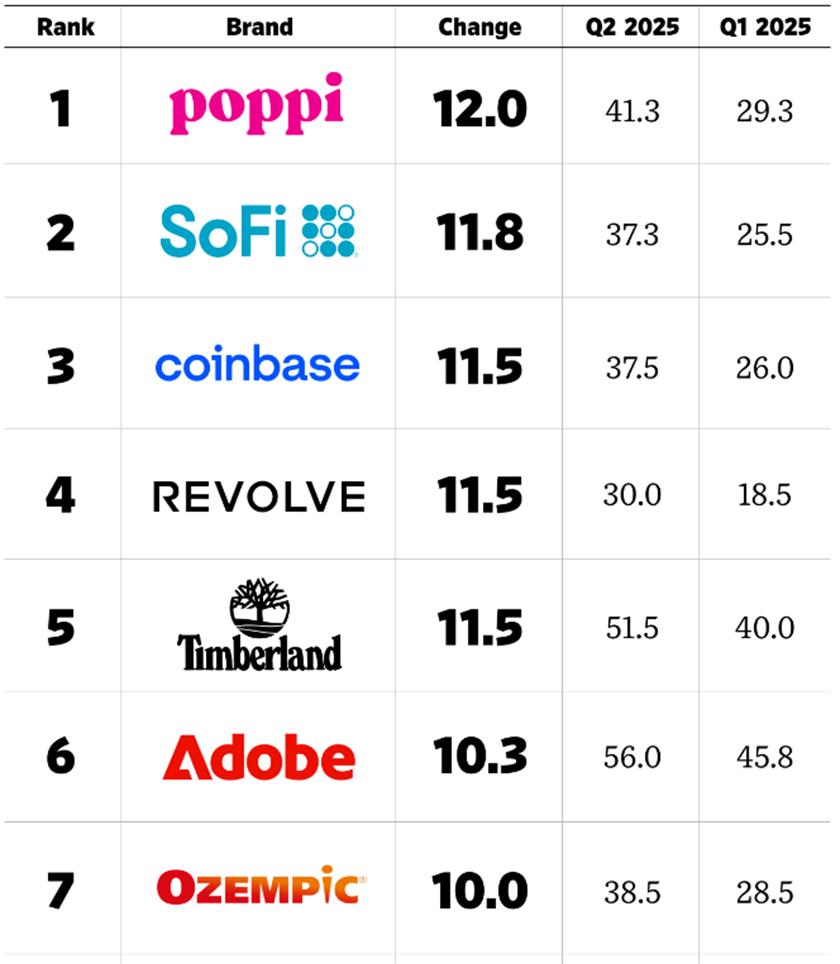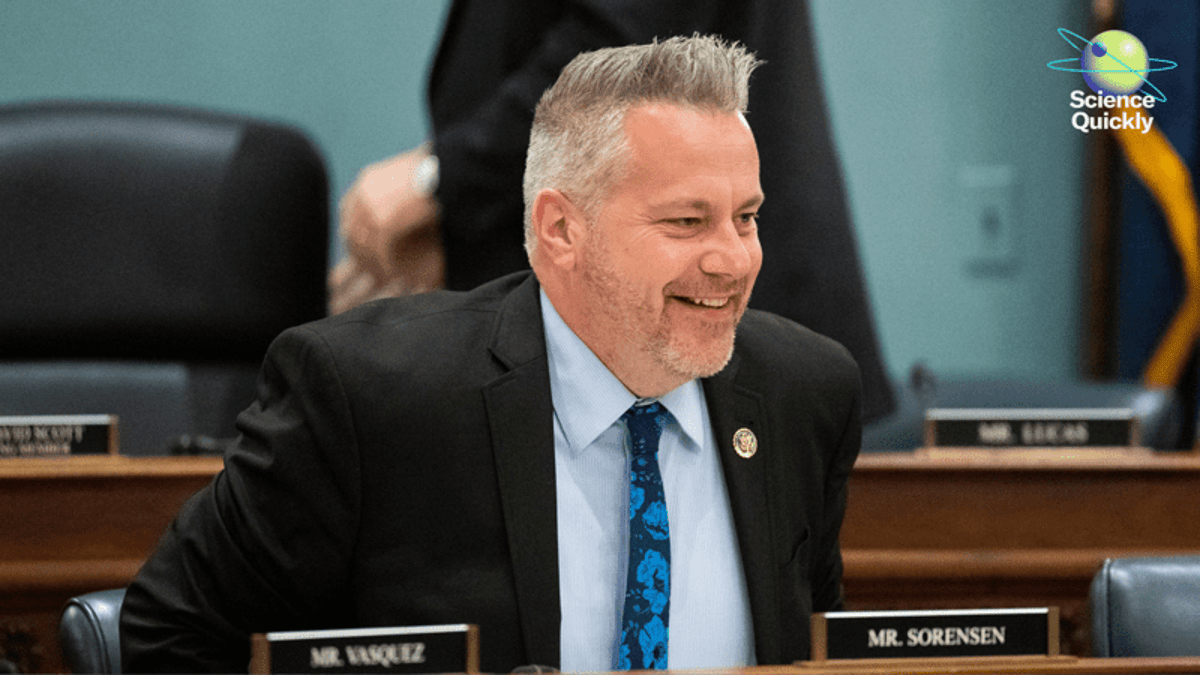Among the top 20 fastest-growing growth brands beloved by Americans between 18 and 28 years of age — that is, Gen Z consumers — we see brand-equity love for companies channeling athleisure, fashion, new-fangled financial products, and food & beverage brands.
And then there’s Ozempic, which gained 10 full percentage points from Q1-2025 to Q2-2025, according to The Harris Poll’s QuestBrand research.
What does it mean that a prescription drug has joined these brand-loved rankings?

The QuestBrand research found that as of the second quarter of 2025, more than one in 3 Gen Z consumers intended to use Ozempic or Wegovy (e.g., both semaglutide drugs in a group of GLP-1 agonists) in 2025.
“From a brand standpoint,” Justin Pincus, Managing Director of The Harris Poll’s QuestBrand group observed, “Ozempic has crossed over….It’s no longer just a clinical drug, it’s a cultural shorthand.”
“Cultural shorthand” for what, exactly? I reached out to Justin to find out what was in his mind when he mentioned this observation.
His reply to me:
“We’ve seen it before—Viagra for sex, Ambien for sleep, Xanax for anxiety. Ozempic has joined that elite group where the brand name doesn’t just sell the product… it’s become synonymous with its entire category.”
Health Populi’s Hot Points: There’s another riff on “shorthand” that’s worth considering as it relates to pop culture: the jingle on which the Ozempic DTC broadcast ad is based is “Magic,” written by Pilot band members David Paton and Billy Lyall — and in the 2023-24 ad, sung by Paton himself with the updated lyrics “Oh, Oh, Oh, Ozempic!” in the original Abbey Road Studios where “Magic” was made in 1974. (For those of you into deep rock cuts, the producer of this song was Alan Parsons).
The New York Times has discussed the origin story of the Ozempic jingle and ad, reminding us that, “Music as an asset can have multiple lives,” Billy Mann, Grammy-nominated songwriter and longtime publishing executive is quoted. “There’s a ‘comfort food’ feeling of nostalgia that hit songs can trigger. They’re time machines.”
And those “time machines” can transport us to beloved spaces and times from our past lives.
“In contemporary advertising, campaigns tend to have pretty short shelf lives,” Jeff Rothstein, chief executive of CultHealth, the ad agency for Ozempic, told the New York Times. “Two, three years, tops. Yet ‘Oh, oh, oh, Ozempic’ continues to endure. You can do all the market research in the world, and never end up with something like this.”
So there’s another lens on Justin’s “shorthand:” sometimes leaning into pop culture gets a “hand” from another pop phenomenon.




